The first robotics patent was filed in 1954 by George Devol (granted in 1961), and the first industrial robot was produced by his company, Unimation, in 1956. That robot was capable of moving packaging material about a dozen feet or so.
It ushered in a technological evolution for the global packaging industry. Fast forward almost six decades, and now robotics has become a standard and expected sight in the packaging industry, expanding from product production service to distribution channels. Robotics helped make assembly lines more efficient and precise for a range of industries and businesses.
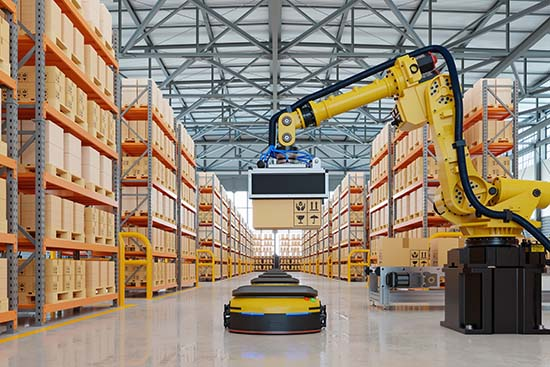
Artificial Intelligence (AI) has proven to be a reliable tech to lead the way for the next evolution of this industry; from production to packaging to distribution. Increasing market demand for eco-friendly materials and paper-based packaging, sustainable consumer goods and service, and the circular economy are some of the critical drivers for the packaging industry to onboard AI.
Artificial Intelligence and the underlying technology (machine learning) can improve business processes and workflows in minutes instead of decades. For example, in the webinar accessible below, Fabio di Memmo from Aptargroup & Monolith CEO Richard Ahlfeld talk about the value of Monolith’s no-code AI platform for packaging, and how to accelerate decisions from months to minutes.
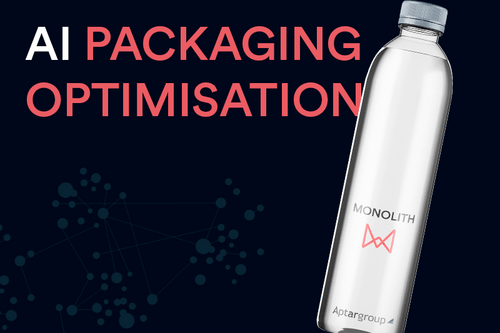
Check out this exclusive webinar on how companies like Aptargroup employ AI for packaging solutions here.
However, there's no one-size-fits-all approach to AI for business customers in the packaging industry. Just like robotics, different solutions can help in varying parts of a business. Below, you can find the most relevant use cases for AI in the packaging industry today.
AI-powered vision systems for packaging inspection
AI has been quietly leading the way in sustainable packaging for a while. Despite what many might think of Amazon packaging, it uses an AI model that learns from real-world customer complaint data to reduce damage to products (from household products, cosmetics, food, to anything consumers purchase while online shopping on Amazon), to ultimately choose the optimum materials for a product.
This machine learning model has been applied to hundreds of thousands of Amazon packages reducing waste, shipment damage by 24%, and cutting shipping costs by 5%.
The algorithms in this model can specify when to use plastic packaging, flexible packaging, corrugated cardboard, or padded mailers instead of the same cardboard boxes for certain items or deliveries, ultimately making packages lighter and ensuring safer delivery.
This means more packages can fit on every delivery truck, which reduces the amount of packaging that will eventually need to be recycled. In turn, this reduces the overall carbon footprint per item while cutting delivery costs, a triple bottom line success story.
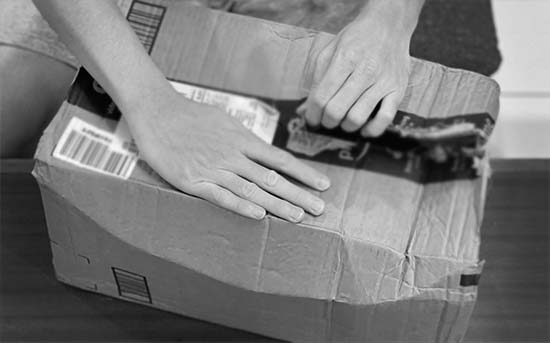
Another case study is of a Packaging Distributors of America (PDA) client who developed a vision system that led to 100% accuracy with package inspection. The client owned a lighting systems company, and customer complaints about orders being delivered with broken parts or missing items were rising due to low-quality plastic packaging. After implementing the AI system, customer complaints were reduced to zero; as well as plastic waste.
Date labelling for packaging
Looking at how machine learning is used in business processes, it is easy to understand that it can be a game-changer by providing accurate data, analysis, and insights on flexible packaging processes. The packaging industry also has benefited from adopting Machine Learning in its own way.
By deploying Machine Learning in processes like date labelling, brand owners and companies alike benefit from better standardised procedures and reduce customer dissatisfaction.
Wrongly labelled products can lead to inspection failures, and customer dissatisfaction and likely cut into a company's profits while increasing overall costs. By using Machine Learning, date labelling can become a standard, guaranteeing lesser manual errors and greater control for efficiencies in processes for companies.
Tesco sets supermarket trend for date labelling
Tesco uses data-embedded barcodes made by a food tech company, OAL, on certain meat products, which it believes will quickly reduce food waste. The label and date code verification solution is the only system currently on the market that can read the information contained within the barcode inline via existing scanners, protecting Tesco's packaging line from otherwise expected errors, emergency product withdrawals (EPWs), and product recalls.
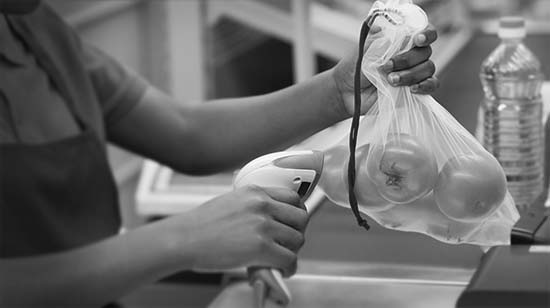
AI-based recycling systems for packaging
Both consumers and manufacturers are realising the ecological cost of not recycling materials correctly. Only a small fraction of the over 2.1 billion tons of garbage the world produces each year gets recycled — about 16%.
AMP Robotics for packaging industry innovation
AMP Robotics is an artificial intelligence and robotics company that aims to change the way we recycle containers, paper, plastic, and other consumer packaging materials. It is rolling out an AI-powered robot called "Cortex" that uses optical sensors to take in material rolls by, and then figures out what should be the next logical step (I.e, recycling plastic, or paper)— even if the instance looks different from anything it's ever seen before.
At least four companies are rolling out similar line models, in the hopes of turning a profit from the US' growing piles of hard-to-sort consumer recyclables.
Artificially intelligent engineering (AIE) of products and packaging
The European Union estimated that over 80% of all product-related environmental impacts are determined during the design phase of a product.
An eco-friendly design impacts the entire supply chain in the packaging world, from suppliers, and manufacturing to distribution to consumers.
This is where Monolith AI comes in as the only product engineering AI provider to work with all types of engineering data to help manufacturers create more sustainable products that still deliver the same quality that business buyers demand and the end consumer expects.
L'Oreal, Aptar, and other packaging manufacturers as well as retailers across the market use Monolith AI to not only develop more sustainable packaging for products, but also to predict the performance of each design for their customers.
Our AI solution can predict performance and help your business decide on the right packaging design faster while reducing costs.
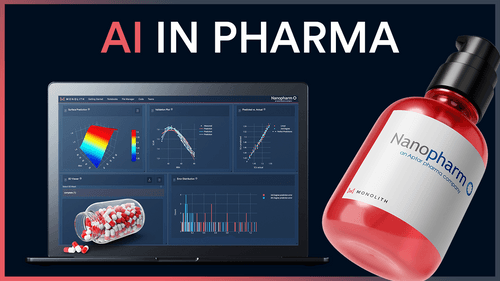
Check out this exclusive case study on how companies like Nanopharm employ AI for pharmaceutical packaging solutions here.
The future of AI and the packaging industry
Currently, our software is the only solution for product development optimisation geared for packaging businesses and beyond. As the only AI provider for product engineering, we believe that so far we have only seen a glimpse of how machine learning can change the landscape of the packaging industry, just like robotics did in 1956.
The e-commerce market has never been more lucrative, with more and more customers relying upon online retailers, who in turn rely on the packaging industry and affiliated businesses to meet that market demand.
However, we also think that AI exists to assist humankind instead of replacing it. So, while errors can be decreased and processes can be streamlined, the future belongs to humans and AI working collaboratively; for e-commerce, packaging industry companies, and beyond.


